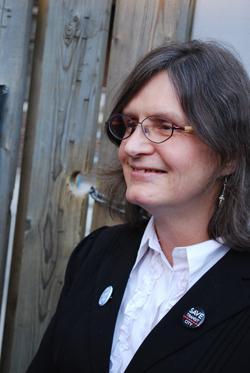As the fight over the city’s core services review heats up over the coming weeks, some trans activists are praising the city for collecting data on the opinions of trans people in its public consultations.
Released Monday, data collected from the public consultations documents how more than 9,000 respondents to an online survey feel about 37 city services, as well as their opinions on taxes and user fees. The survey was conducted over May and June, leading into the 2012 budget deliberations.
Sixty-three of the respondents, or 0.7 percent, identified as transgendered. That number may undercount how many transgendered people participated in the survey, if they preferred to indicate their gender as male or female on the form.
Although the data is not a scientific, representative sample – respondents were self-selected instead of being chosen at random – the survey provides an interesting snapshot on trans people’s opinions about city services and may speak to how some trans people are poorly served by some city agencies.
While females, males and trans people generally indicated that they supported the same things, the levels of support for some services differed among the groups. Trans people were generally more supportive of affordable housing, family and child services, health- and long-term care, employment services, community centres, arts organizations and environmental programs, while their support for police, fire, city planning, garbage and traffic services was lower than that for males or females.
Trans activist Susan Gapka says that the differing levels of support among trans people speaks to many trans people’s dependence on city services and the gap between services provided to males, females and transgendered people.
“Trans people experience high levels of harassment and discrimination in the workplace and housing, so access to employment and housing services would be rated highly by people who rely on those services,” she says.
Only 57.4 percent of trans respondents said police services were “necessary for the city,” compared to 79.9 percent of males and 84.6 percent of females.
“That doesn’t surprise me,” Gapka says. “The police and corrections operate in a very binary sort of fashion. Trans people have experienced harassment and discrimination by police.”
The low level of support gives a clear indication that more needs to be done to make city services accessible to trans people, Gapka says.
“It’s important we look at the data and make a case for services that respond to the needs of this community,” she says.
But Gapka can’t explain why trans people indicated lower levels of support for traffic services, libraries, public transit, fire services, planning, building permits and garbage collection.
“I suspect that many people struggle with the everyday needs of housing and food and haven’t really thought of some of those other categories very much,” she says.
The collected data also indicate that, contrary to Mayor Ford’s stated preference to cut services rather than raise taxes, respondents generally prefer the opposite. Interestingly, transgendered respondents supported a higher tax hike than either males or females.


 Why you can trust Xtra
Why you can trust Xtra


